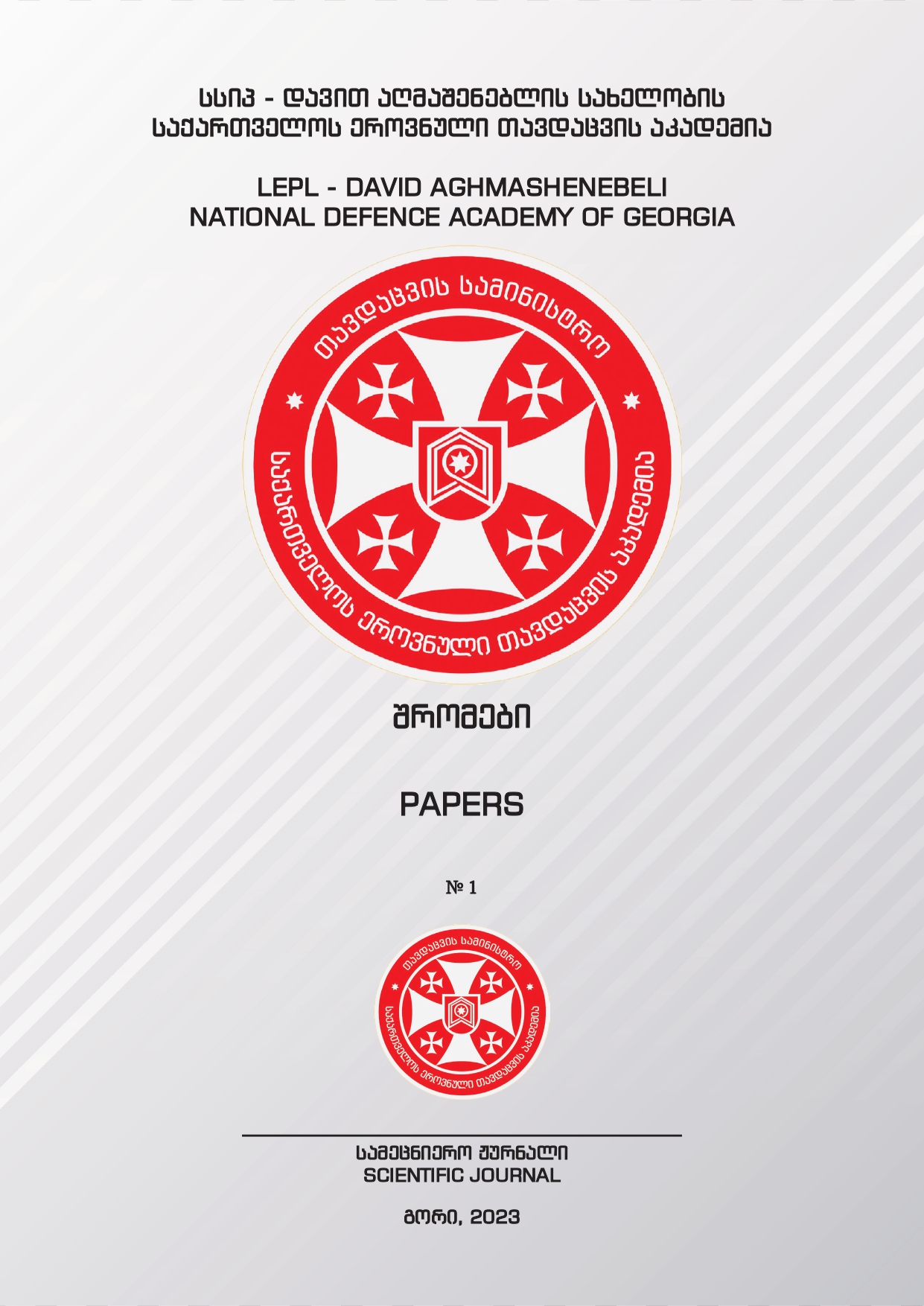The Role Of Disarmament, Demobilization And Reintegration In Reducing The Potential Threat Of Renewed Armed Conflict
Main Article Content
Abstract
The work “The role of disarmament, demobilization and reintegration in reducing the potential threat of renewed armed conflict” discusses the following stages of modern armed conflicts, aimed at bringing peace and political and economic development of the country, as well as establishing a stable public life and improving the social background of the population. The work also comprises the active involvement of governmental and public organizations in the process of disarmament, demobilization and reintegration, both in terms of command and control of individual actions and information and logistics provision.
The process of the above follow-up actions of the armed conflicts itself implies the emergence of certain problematic issues and the presence of accompanying negative events, which can be clearly seen in the work and are related to individual or group psycho-emotional manifestations of people, existence of combatants, poor social conditions, unemployment, humanitarian crisis, corruption, increased crimes, etc. The listed problems have a negative impact on the processes of disarmament, demobilization and reintegration, and significantly hinder the effectiveness of their implementation and the final goal. They also delay the processes aimed at the stability of the country, in particular prevents the perfect functioning of the government and law enforcement structures, the development of the private sector and business, as well as education and healthcare systems.
The work also presents not only the activities of the state in the process of disarmament, demobilization and reintegration, but also the involvement of international organizations and their positive or negative impact on the mentioned processes, as well as issues related to migration and emigration, which are very relevant for the next stage of the armed conflict, in relation to the population emigrating outside the country or migrating from the area of hostilities. Attention is also focused on one of the most important factors in the implementation of disarmament, demobilization and reintegration, which is the gaining of mutual trust between the governmental and public organizations involved in the above process and the persons, groups or formations on the other side.
The process of disarmament, demobilization and reintegration discussed in the study emphasizes the importance of implementing actions focused on peace and stability in the period after modern armed conflicts, discusses their positive and negative sides, highlights the contribution of the involvement of local government and public organizations and the activities of international organizations in the above-mentioned processes, and historical examples used in the work further strengthen and clearly present the need to carry out the process of disarmament, demobilization and reintegration in the period after the end of armed conflicts.
